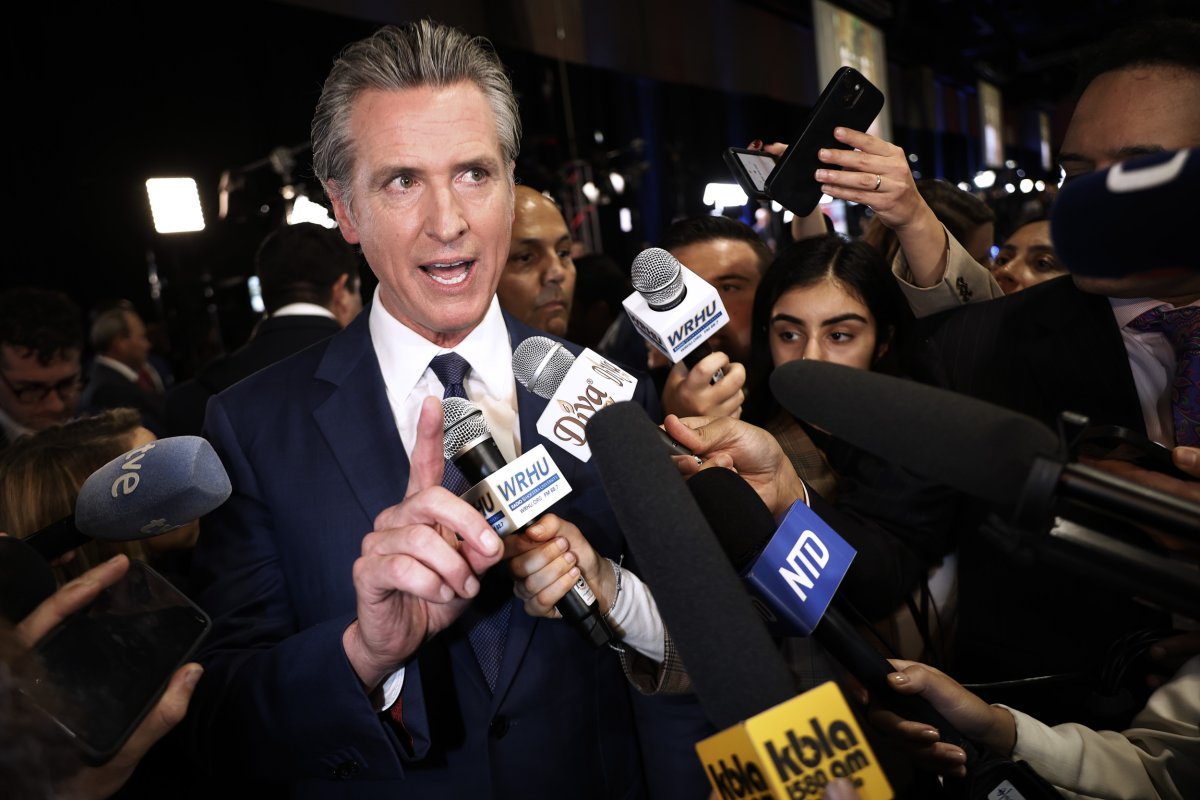
California has enacted some of the nation's strictest measures to combat the spread of deepfakes in elections ahead of the 2024 vote. Gov. signed a series of bills at an AI conference in .
New policies include a law targeting fake political ads and materials that could mislead the electorate. This law, which took effect immediately, allows individuals to sue for damages if they have been harmed by . It also empowers courts to order the removal of misleading AI-generated materials that misrepresent candidates, election processes, or even election workers.

I just signed a bill to make this illegal in the state of California. You can no longer knowingly distribute an ad or other election communications that contain materially deceptive content -- including deepfakes. Gov.
Newsom said these measures are vital for preserving public trust in elections at a time when AI technologies are advancing rapidly. They will also position the state at the forefront of addressing artificial intelligence's potential impact on integrity. "This is about protecting democracy, ensuring that Californians get the truth, not manipulated fabrications that could sway how people vote," he said.
However, the new legislation is already facing legal opposition. A lawsuit was filed in Sacramento by a political activist who had created parody videos featuring altered audio clips of Vice President . This individual, whose work has been shared by , claims the new laws infringe on First Amendment rights.
His complaint argues that the laws are too broad and could be used to censor under the guise of regulating AI-generated content. "The governor of California just made this parody video illegal in violation of the Constitution of the United States," Musk wrote on X, formerly known as , referring to one of the parody videos shared on his platform. Musk has been one of Newsom's more vocal critics, notably mocking the governor's AI policies in a tweet referencing the satirical persona "Professor Suggon Deeznutz.
" State officials argue that the legislation does not target satire or parody, but rather deceptive materials that mislead voters without clear labeling that AI was involved. "This new disclosure law for election misinformation isn't any more onerous than laws already passed in other states," Newsom's spokesperson Izzy Gardon said in response to the lawsuit. Experts on both sides of the debate are watching closely, as the state's approach could set a national precedent.
Theodore Frank, the attorney representing the complainant, warned that the law could open the door for to "censor and harass people" based on subjective interpretations of AI-created content. Public Citizen, a consumer advocacy organization, tracks state laws on election deepfakes. Its representative, Ilana Beller, said that although California's new law has potential as a deterrent, its real-world effectiveness will depend on how quickly courts can act to stop the spread of misleading content.
"In an ideal world, we'd be able to take the content down the second it goes up," she said. "Because the sooner you can take down the content, the less people see it, the less people proliferate it through reposts and the like, and the quicker you're able to dispel it.".










